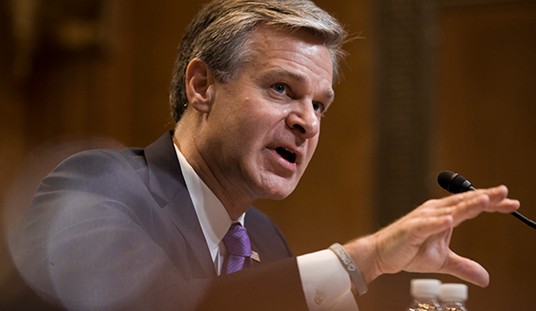This time, Juan Manuel Santos Calderón took no chances. The last time he signed a peace deal with FARC, the Marxist rebels that had been at war with Colombia for more than five decades, Santos put the deal up for a referendum, expecting a broad victory that would cement his political power as president. Instead, Santos suffered a humiliating defeat and was forced back to the negotiating table to get better terms.
This time, Santos relied on his legislative majority to ratify a new peace deal:
Colombia’s congress approved a historic peace deal with the country’s largest rebel group on Wednesday night, raising hopes that Latin America’s longest war was finally ending.
The vote came two months after voters narrowly rejected a similar peace accord in a nationwide referendum. But after making changes to the pact, President Juan Manuel Santos decided to get it approved by lawmakers. The war, which started in 1964, has left at least 220,000 dead and drove 7 million people from their homes.
The 130-to-0 decision by the lower house, which came one day after the senate approved the agreement, paves the way for guerrilla fighters to lay down their weapons and enter the political arena. Opponents of the peace deal abstained from voting.
USA Today notes some of the changes between the two deals:
The changes require the FARC to be more open about its illicit activities such as drug trafficking and kidnappings for ransom to support its resistance. The new deal exposes more rebels to criminal prosecution. Revisions include a prohibition on foreign magistrates judging alleged crimes by government troops or by the FARC.
But the FARC wouldn’t go along with the opposition’s strongest demands — jail sentences for rebel leaders behind atrocities and stricter limits on their future participation in politics.
It also included more protections for landowners, and reparations from rebels to those harmed by their criminal activities. These were not enough for the opposition, headed by Santos’ predecessor Alváro Uribe. Those representatives staged a walkout before the vote, but the legislature easily kept a quorum and ratified the deal unanimously.
That leaves Santos in a very precarious position. The referendum would have implemented the terms immediately, allowing for the transition to begin while Santos could claim a mandate. Now, however, the Colombian legislature will need to pass a series of statutes to fulfill the agreement, and that legislative cycle will take several months to complete. Those include the amnesty provisions that nearly scotched the deal twice. That leaves FARC rebels sitting in camps doing nothing for a very long time. Santos wants to pass legislation that would fast-track new laws, but that will require a favorable ruling from Colombia’s constitutional court, and that might take a while to get — if they can get it at all.
Complicating matters is the upcoming elections in 2018, the process of which begins next year. Losing the referendum doesn’t make that any easier for Santos, and voters might well resent having been bypassed on the second deal after rejecting the first. If Santos loses, the entire deal could fall apart, especially if the legislation implementing it doesn’t get passed before then [see update below — Santos is term limited]. If the FARC rebels get too antsy for action while waiting for months on end in the camps and the cease-fire falls apart, Santos and his party will get the blame, and the whole exercise will have been for naught. It might have been smarter to go through the legislature the first time, rather than grandstand with the referendum.
On the other hand, if the deal holds up and the reintegration process begins uneventfully, perhaps the voters of Colombia will forgive Santos and reward him with another term. The people of Colombia have not known peace for most of their lifetimes, and they want to put war behind them — as long as it’s in a just manner. For that, though, Colombians will have to vigilantly watch the process unfold for years even after a good start.
Update: The previous vote is more accurately a referendum, not a plebiscite. Thanks to Carleton on Twitter for the correction. Also, in a more substantial correction, Santos is term limited and cannot run again in Colombia, as Jaime Vengoechea reminded me on Twitter.








Join the conversation as a VIP Member